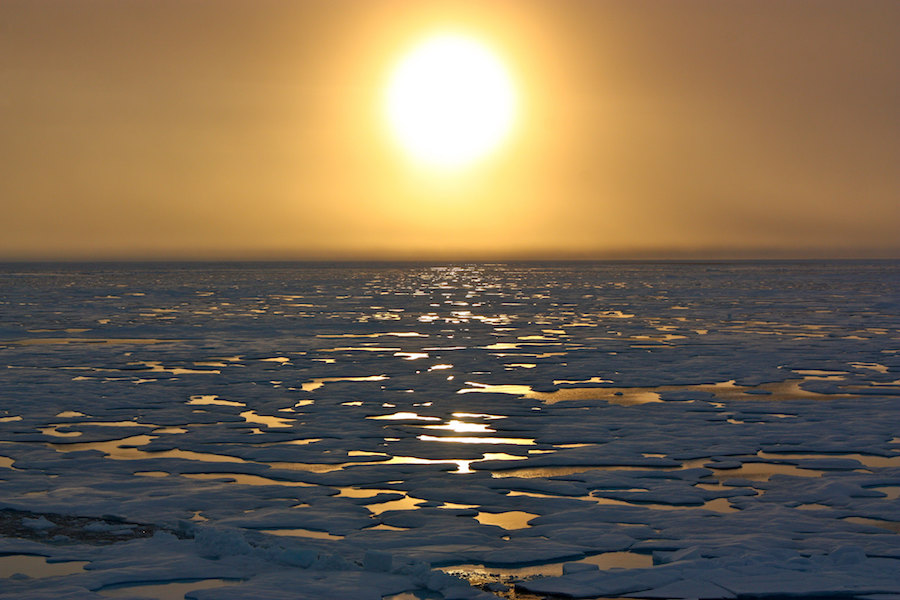
 It’s like a bad episode of “Intervention”: 16,000 scientists from 184 countries issued a second “warning to humanity” earlier this month, exposing the consequences of the world’s dependence on pollution-causing industries and hoping that we’ll see through years of denial and broken promises.
It’s like a bad episode of “Intervention”: 16,000 scientists from 184 countries issued a second “warning to humanity” earlier this month, exposing the consequences of the world’s dependence on pollution-causing industries and hoping that we’ll see through years of denial and broken promises.
William Ripple, an ecologist and professor at Oregon State University, led the scientists’ warning letter, published in BioScience journal. The new warning letter reflects on environmental issues exacerbated by climate change after a first warning letter was published by the Union of Concerned Scientists in 1992. Since then, we’ve continued down the same path of self-destruction. What will happen if we wait another 25 years to contemplate our progress toward environmental stability?
In the Sacramento area, the number of extreme heat days, in which temperatures reach 101 degrees or higher, will increase from four to 17 days per year by 2050. The number of days with temperatures of 95 degrees or higher will increase to 22 by 2050. The area will also experience a “heat-island effect,” which could make temperatures in urban areas seem 10 degrees hotter than rural areas. And the projections go on and on.
“Uncertainty over the extent of these effects cannot excuse complacency or delay in facing the threats,” the Union of Concerned Scientists said in their letter to humanity.
Unfortunately, we’re still dealing with the same complacency from policymakers that we dealt with 25 years ago.
White House environmental official Kathleen Hartnett White recently said, “I think we indeed need to have more precise explanations of the human role and the natural role.”
That’s enough to make any environmentalist retire to their hammock with a bucket of Cheese Balls and say, “I give up.”
I’d like to think that our country and its citizens are more analytical and less defeatist about the problems they face.
California Gov. Jerry Brown unapologetically offered the crowds his thoughts at a climate change conference in Bonn, Germany.
“The science is getting clearer and the extreme weather events are getting more frequent. All of that leads to more understanding, more clarity and then more action,” Brown said.
Brown’s right about that. It’s getting harder to ignore climate change, especially after this year’s fires and hurricanes, which explains why the scientists’ message was urgent:
“To prevent widespread misery and catastrophic biodiversity loss, humanity must practice a more environmentally sustainable alternative to business as usual.”
The letter may seem to echo similar doomsday sentiments presented by the theory of the planet’s sixth mass extinction, which stirred controversy among scientists for its dire message. But there’s a dire need to address climate change, and scientists are trying to get our attention.
CNN called the scientists’ warning a plea for humans “to change our wicked ways to help the planet.” Their commentary could be misconstrued, however, especially considering recent comments by Hartnett White.
“There’s a real dark side of the kind of paganism — the secular elites’ religion now — being evidently global warming,” Hartnett White said.
It’s difficult to understand these and similar cynical comments that undermine researchers and environmentalists’ efforts to improve life for everyone.
The warning letter importantly addressed personal decisions, empowering average people to do something about environmental issues.
“It is also time to re-examine and change our individual behaviors,” the letter said.
“We are hoping that our paper will ignite a widespread public debate about the global environment and climate,” Ripple said.
The letter — covered by numerous media sources — has encouraged dialogue on climate change. Hopefully, it has also made individuals think about what they can do to mitigate climate change impacts.
“Working together while respecting diversity of people and opinions and the need for social justice around the world, we can make great progress for the sake of humanity and the planet on which we depend,” the letter said.
This is the part we could all take something from: learning to work together despite our differences. We’re faced with divisive politics when we should be coming together, not as the “one-world state ruled by planetary managers” imagined by Hartnett White, but just as average Americans working to reduce our carbon footprints, sorting our recycling and turning off the water when we brush our teeth.
Written by: Jessica Driver — jmdriver@ucdavis.edu
Disclaimer: The views and opinions expressed by individual columnists belong to the columnists alone and do not necessarily indicate the views and opinions held by The California Aggie.




